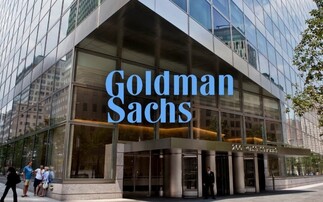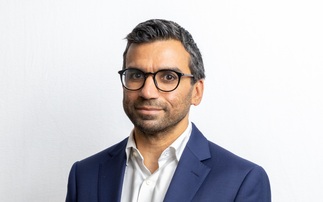After an exuberant 2017 for the markets, can they rise further? Lyxor ETF shares five themes which could move markets in 2017.
With 2018 now in full swing, market growth momentum seems strong and synchronised - yet everything is feeling a bit "toppish", especially with central banks heading for the QE exit doors.
On the valuation front, most metrics are higher than during the dot-com boom and sub-prime crisis. We're not calling a crash - not yet, anyway - but with liquidity infusions set to grind to a halt there's no room for complacency. While we expect a positive start to the year, regional and asset class returns could diverge during 2018.
Find the right ETF for your outlook: Interactive Tool
Let's take a look at the five main themes we expect to move the markets during the year.
- A fiscal push
One of the main themes will be US tax reform and a rise in capex. In the US, tax reform means equities should perform well early in 2018. Winners could include domestically oriented names, small caps, retail, the tech giants, and possibly banks. However, highly indebted companies will struggle with the limits imposed on interest deductions so we're wary of US high-yield bonds.
In Europe, we expect more of a cyclical pick-up in investment, while the Japanese government is rumoured to be ready to incentivise companies to invest their cash. In China, reforms focusing on the environment, electric vehicles and profitability should also fuel capex.
All this could bode well for commodities (excluding agriculture) and infrastructure as well as sectors like materials, technology and financials.
- The withdrawal of QE
Central banks look set to move further away from their super-accommodative policies. So far, policy normalisation has proceeded with little upset, and risk-on strategies remain appealing for now. But it could be time to consider preparing your portfolio to dampen the effects of rising inflation and rates, market volatility and currency movements.
Ten-year US Treasuries - a safe haven that is still in great demand - and German Bunds look good options in a risk-off scenario. Japan also appeals because of its loose monetary policy, while minimum variance strategies could be an option for equity investors.
While the major central banks currently look set to tighten, any slowdown in global growth would halt monetary policy normalisation immediately. It's taken a decade to heal the global economy, and they're not about to jeopardise their hard work by tightening unduly.
What made 2017 a record year for records? Find out more
3. Bond yields to rise... eventually
The good days for bonds could be over. Some factors keeping rates low remain in place, but the global economy is in its best shape in a decade and the threat of deflation has disappeared. Our core scenario is that yields rise - although we're not calling a market implosion.
In such an environment, we recommend reducing duration. Countries where inflation (or growth) is less likely to be better than expected, such as Japan and the UK, look the best option in the government bond universe.
We also like inflation breakeven stories, starting with the US early in the year and the eurozone later in 2018.
Floating-rate contracts are another possibility to help deal with the threat of rising rates, as are short-duration bonds. Credit - notably high yield - looks expensive. We prefer European to American bonds as the ECB will remain active in the markets at least until September.
- Asia advances
Asia ex-Japan outperformed last year and the three major indicators we follow - earnings, valuations and liquidity - are still sending positive signals.
What's more, an improving structural story keeps us positive on Japan - especially given the likelihood of another four years of Abe's loose policy mix.
In China, there's value to be found in the reform of state-owned enterprises and the focus on the environment. Shorter-term, Chinese equities look unlikely to repeat their stellar 2017: monetary tightening is underway and excesses are being tempered.
In emerging Asia we favour Korea on valuation grounds, surging earnings growth and improving governance. We also like ASEAN markets, especially Malaysia.
How to prepare for 2018: Seize opportunity. Avoid complacency
5. Be selective in Europe
With European equity valuations well above their long-term averages, a selective approach will be key in 2018.
We like French stocks given the general recovery and the progress of "Macronomic" reforms. German stocks also look attractive, especially if a Grand Coalition leads to increased government spending.
Conversely, the ECB's gradual withdrawal of QE and a number of political hurdles cloud the outlook for Italy and Spain. And Greece could also hit the headlines this year. With its third bailout package ending in August, it will need to re-access the bond markets.
Meanwhile, UK equities continue to face Brexit battles. The agreed-upon divorce deal should bring some hope, but trade treaty deliberations complicate the outlook.
Find out more about Lyxor's investment outlook at LyxorETF.co.uk
THIS COMMUNICATION IS FOR ELIGIBLE COUNTERPARTIES OR PROFESSIONAL CLIENTS ONLY
This document is for the exclusive use of investors acting on their own account and categorized either as "Eligible Counterparties" or "Professional Clients" within the meaning of Markets in Financial Instruments Directive 2004/39/EC. These products comply with the UCITS Directive (2009/65/EC). Société Générale and Lyxor International Asset Management (LIAM) recommend that investors read carefully the "investment risks" section of the product's documentation (prospectus and KIID). The prospectus and KIID are available free of charge on www.lyxoretf.com, and upon request to [email protected].
The products mentioned are the object of market-making contracts, the purpose of which is to ensure the liquidity of the products on the London Stock Exchange, assuming normal market conditions and normally functioning computer systems. Units of a specific UCITS ETF managed by an asset manager and purchased on the secondary market cannot usually be sold directly back to the asset manager itself. Investors must buy and sell units on a secondary market with the assistance of an intermediary (e.g. a stockbroker) and may incur fees for doing so. In addition, investors may pay more than the current net asset value when buying units and may receive less than the current net asset value when selling them. Updated composition of the product's investment portfolio is available on www.lyxoretf.com. In addition, the indicative net asset value is published on the Reuters and Bloomberg pages of the product, and might also be mentioned on the websites of the stock exchanges where the product is listed.
Prior to investing in the product, investors should seek independent financial, tax, accounting and legal advice. It is each investor's responsibility to ascertain that it is authorised to subscribe, or invest into this product. This document is of a commercial nature and not of a regulatory nature. This material is of a commercial nature and not a regulatory nature. This document does not constitute an offer, or an invitation to make an offer, from Société Générale, Lyxor Asset Management (together with its affiliates, Lyxor AM) or any of their respective subsidiaries to purchase or sell the product referred to herein.
Lyxor International Asset Management (LIAM), société par actions simplifiée having its registered office at Tours Société Générale, 17 cours Valmy, 92800 Puteaux (France), 418 862 215 RCS Nanterre, is authorized and regulated by the Autorité des Marchés Financiers (AMF) under the UCITS Directive (2009/65/EU) and the AIFM Directive (2011/31/EU). LIAM is represented in the UK by Lyxor Asset Management UK LLP, which is authorized and regulated by the Financial Conduct Authority in the UK under Registration Number 435658. Société Générale is a French credit institution (bank) authorised by the Autorité de contrôle prudentiel et de résolution (the French Prudential Control Authority).
Lyxor International Asset Management ("LIAM") or its employees may have or maintain business relationships with companies covered in its research reports. As a result, investors should be aware that LIAM and its employees may have a conflict of interest that could affect the objectivity of this report. Investors should consider this report as only a single factor in making their investment decision. Please see appendix at the end of this report for the analyst(s) certification(s), important disclosures and disclaimers. Alternatively, visit our global research disclosure website www.lyxoretf.com/compliance.













